Vue normale
-
Le Devoir
-
Les Royals marquent sept fois en première manche et pulvérisent les Blue Jays
Le lanceur Max Scherzer a été chassé après avoir effectué seulement deux retraits.
-
Le Devoir
-
Wesley Sutton et les Alouettes arrachent la victoire à Toronto
L’équipe montréalaise a porté sa fiche à 7-7 avec ce deuxième gain de suite.
Wesley Sutton et les Alouettes arrachent la victoire à Toronto
-
NYT > World News

-
What U.S.-Korea Ties Mean on the 75th Anniversary of the Incheon Landing
Incheon, the site of a crucial battle of the Korean War, has a singular place in South Korea’s modern history and in its ties with the United States.
What U.S.-Korea Ties Mean on the 75th Anniversary of the Incheon Landing

-
Le Devoir
-
Le CIO confirme le statue des athlètes russes, rien sur Israël
Le CIO a précédemment affirmé qu’Israël n’avait pas contrevenu à la Charte olympique comme l’avait fait la Russie.
Le CIO confirme le statue des athlètes russes, rien sur Israël
-
Le Devoir
-
Juraj Slafkovsky veut enfin connaître un bon début de saison avec le Canadien
Slafkovsky avait terminé la saison 2023-24 en force, avec 43 points à ses 53 derniers matchs.
Juraj Slafkovsky veut enfin connaître un bon début de saison avec le Canadien
-
Le Devoir
-
Le Canada bat la Nouvelle-Zélande et passe en finale de la Coupe du monde de Rugby
Le règne de huit ans des Néo-Zélandaises a pris fin sur la pelouse de Bristol, en Angleterre.
Le Canada bat la Nouvelle-Zélande et passe en finale de la Coupe du monde de Rugby
-
Journal Le Soir

-
La Cavale : club toujours vivant après 45 ans
Le Club de course à pied La Cavale de Rimouski célèbre son 45e anniversaire cette année. Autant les fondateurs que les membres actuels constatent qu’il a bien évolué. Il a été créé, en 1980, par Dave Redmond, Antoine Roy, Richard Fournier, Bernard Boissonneault et Robert St-Laurent, tous des rimouskois passionnés de course. « Ça allait de soi parce qu’il y avait un engouement pour le jogging qui arrivait au Québec. Nous nous connaissions un peu et l’idée est venue de former un club pour
La Cavale : club toujours vivant après 45 ans

Le Club de course à pied La Cavale de Rimouski célèbre son 45e anniversaire cette année. Autant les fondateurs que les membres actuels constatent qu’il a bien évolué.
Il a été créé, en 1980, par Dave Redmond, Antoine Roy, Richard Fournier, Bernard Boissonneault et Robert St-Laurent, tous des rimouskois passionnés de course.
« Ça allait de soi parce qu’il y avait un engouement pour le jogging qui arrivait au Québec. Nous nous connaissions un peu et l’idée est venue de former un club pour mieux nous organiser. Nous faisions des entraînements une fois par semaine avec un petit groupe d’une trentaine de personnes », explique monsieur Fournier.
La Cavale a été soutenue par l’Université du Québec à Rimouski (UQAR) au départ étant donné que ce dernier y travaillait.
« Il y avait des courses d’organisées dans les grandes villes et nous avons commencé à y participer. À partir de là, nous avons créé un conseil d’administration avec des règlements et nous faisions des sorties chaque semaine. »
Engagement communautaire
Les membres ont ensuite commencé à organiser des événements. Le plus marquant, selon Richard Fournier, est Les 100 km de La Cavale au profit de l’Association du cancer de l’Est du Québec (ACEQ). Les participants de cette course à relais partaient de Matane pour se rendre à Rimouski.
« C’était important parce que nous venions associer La Cavale à un organisme. Les petites familles participaient. Nous voulions que le club ne soit pas juste l’élite de la course, mais qu’il soit aussi composé de gens qui s’impliquent dans leur communauté. »

Monsieur Fournier avait 30 ans lorsqu’il a fondé le club. Il se réjouit de voir que la course à pied est toujours aussi populaire.
« C’est mon sport, je fais encore de la course dans les sentiers. Quand je vois des jeunes qui courent le midi, ça me rend heureux. La course, ça comble une vie. C’est une activité qui s’intègre bien dans la vie familiale et qui apporte un bien-être. De voir que 4 000 personnes ont participé au Marathon de Rimouski, c’est impressionnant. »
Passion partagée par 70 coureurs
La Cavale compte aujourd’hui 70 coureurs assistés par deux entraîneurs. Membres du conseil d’administration, Louise Gendron constate tout le chemin parcouru depuis les débuts.
« Au départ, il y avait des gens très soucieux de développer ce sport. Ils l’ont fait avec les moyens qu’ils avaient à l’époque, mais toujours dans un esprit de nouveauté et de volonté d’être moderne. La Cavale a suivi les tendances. »
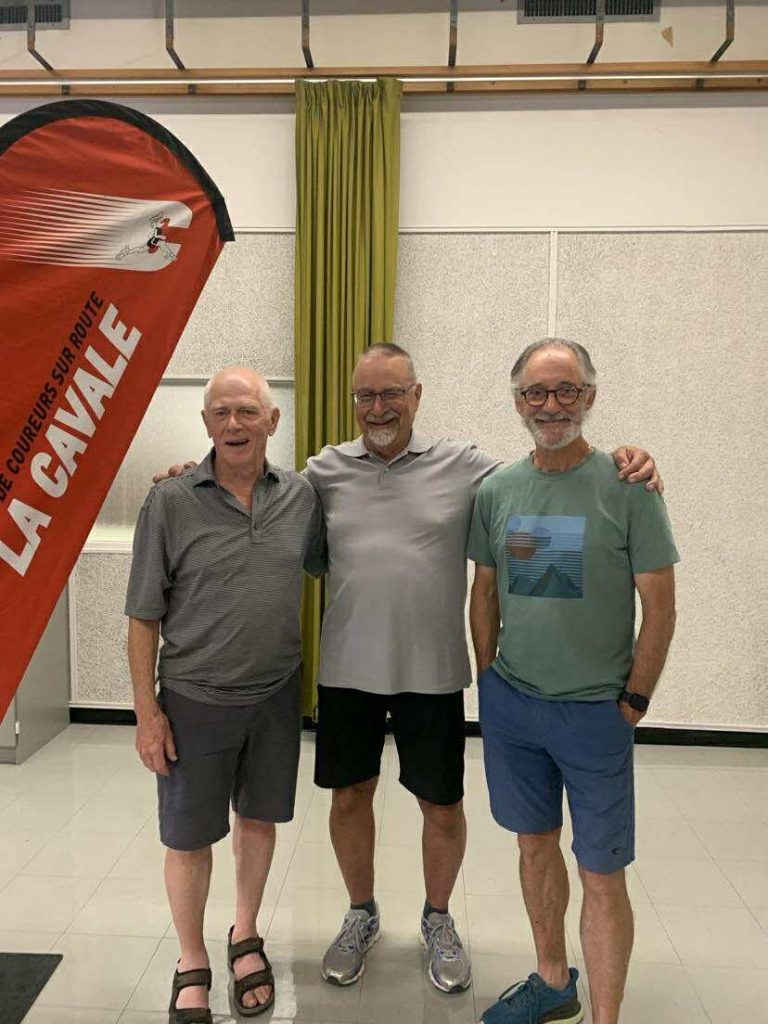
Le club est maintenant ouvert à tous les types de coureurs.
« Nous avons des gens qui veulent apprendre à courir, prendre un programme progressif ou reprendre la course. Ce sont des gens de tous âges. Il y a toujours un entraînement qui va les satisfaire par rapport à leurs objectifs personnels. Tout le monde progresse à sa vitesse », indique madame Gendron.
Des rassemblements pour courir
Trois rassemblements par semaine sont organisés à la piste d’athlétisme ou à différents endroits à Rimouski. Les membres peuvent se présenter quand ils veulent. Deux sessions de 24 semaines sont offertes dans l’année. Louise Gendron a commencé la course tardivement dans sa vie. Elle a trouvé sa place au sein de La Cavale il y a cinq ans.
« Ça permet de garder la forme et c’est très socialisant, les gens jasent entre eux. Nous apprenons à connaître différentes personnes. »
Les détails sur le club de course sont en ligne au www.lacavale.ca.
-
Euromaidan Press
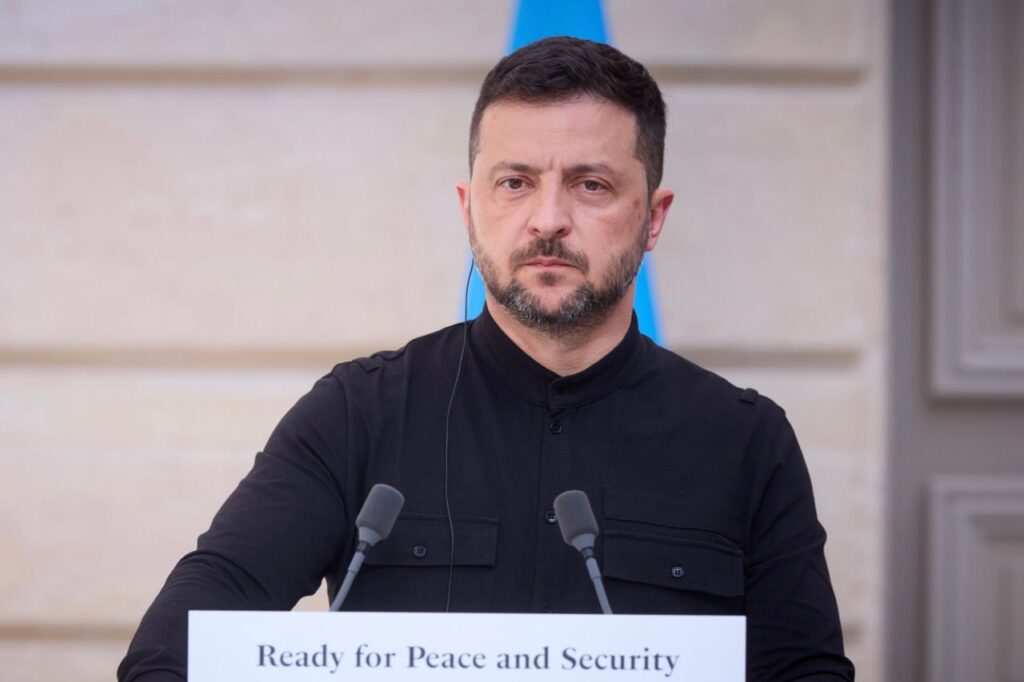
-
Zelenskyy announces plans for controlled arms exports to fund Ukrainian weapons production
Ukrainian President Volodymyr Zelenskyy announced on Friday plans to begin controlled exports of certain Ukrainian weapons to help finance domestic arms production. Speaking in his evening address, Zelenskyy said that while priority remains supplying frontline units and maintaining national stockpiles, surplus modern weapons – such as sea drones and some anti-tank systems – could be exported under strict controls. Zelenskyy noted that Ukraine can produce certain modern we
Zelenskyy announces plans for controlled arms exports to fund Ukrainian weapons production

Ukrainian President Volodymyr Zelenskyy announced on Friday plans to begin controlled exports of certain Ukrainian weapons to help finance domestic arms production.
Speaking in his evening address, Zelenskyy said that while priority remains supplying frontline units and maintaining national stockpiles, surplus modern weapons – such as sea drones and some anti-tank systems – could be exported under strict controls.
Zelenskyy noted that Ukraine can produce certain modern weapons in far greater quantities than it can currently fund on its own, while some types of arms are already in surplus relative to the country’s immediate needs.
He emphasized that exports will be for allied countries with verified interest in supporting Ukraine, while preventing technology from reaching Russian forces or their collaborators.
Ukrainian forces, companies, and the army possess extensive experience in modern warfare, particularly in operating advanced weapons and cutting-edge technologies, the president highlighted.
Within two weeks, Ukraine plans to present three export platforms: one for the US, one for European partners, and one for other international allies.
Zelenskyy said the initiative will allow Ukrainian manufacturers to expand production, particularly of drones needed at the front, while covering funding gaps in domestic defense production.
He also indicated that there is strong international interest in collaborative weapons production with Ukraine, and that demand for Ukrainian arms is clear.
“First priority is the front, supplying our brigades. Second is our national arsenals. Only third comes controlled exports,” Zelenskyy said. He stressed that exports are not meant as “weapons charity,” but as a strategic tool to strengthen Ukraine’s defense capabilities.
-
NYT > U.S. News

-
Trump Administration Petitions Supreme Court on Passport Gender Policy
The administration asked the justices to lift a lower court block on a policy requiring passports to reflect only the holder’s sex on an original birth certificate.
Trump Administration Petitions Supreme Court on Passport Gender Policy

© Tierney L. Cross/The New York Times
-
France 24 - Infos, news & actualités - L'information internationale en direct

-
Coupe du monde de rugby : les Bleues vont-elles enfin battre l'Angleterre, leur bête noire ?
Les Bleues ont rempli leur contrat en se qualifiant pour les demi-finales de la Coupe du monde de rugby. Mais elles ont faim et rêvent d'aller plus loin. Pour cela, elles vont devoir se défaire des Anglaises, favorites de la compétition, qu'elles n'arrivent jamais à battre.
Coupe du monde de rugby : les Bleues vont-elles enfin battre l'Angleterre, leur bête noire ?

-
France 24 - Infos, news & actualités - L'information internationale en direct

-
Erling Haaland s'offre un record en Champions League et une victoire à Manchester City
Buteur face à Naples pour la première rencontre de Manchester City en Ligue des champions cette saison, Erling Haaland est devenu l'un des plus jeunes joueurs à franchir la barre des 50 buts dans la compétition. Un record de précocité salué par Pep Guardiola après la victoire des Cityzens.
Erling Haaland s'offre un record en Champions League et une victoire à Manchester City

-
Le Devoir
-
Les Roses défont les Tides et se qualifient pour les éliminatoires
Stephanie Hill et Noémi Paquin ont touché la cible pour la formation montréalaise.
Les Roses défont les Tides et se qualifient pour les éliminatoires
-
Le Devoir
-
Menés par Chandler Simpson, les Rays blanchissent les Blue Jays
Ce faisant, les Rays ont divisé les honneurs de cette série de quatre matchs avec la formation torontoise.
Menés par Chandler Simpson, les Rays blanchissent les Blue Jays
-
France 24 - Infos, news & actualités - L'information internationale en direct

-
Ligue des champions : Manchester City et le Barça assurent, Monaco s'effondre à Bruges
À l'occasion de la première journée de phase de ligue de la Ligue des champions, Manchester City a mis jeudi KO le Napoli (2-0) tandis que le FC Barcelone a dompté Newcastle (2-1). De son côté, Monaco, le dernier club français à entrer en lice, a totalement coulé en déplacement au Club Bruges.
Ligue des champions : Manchester City et le Barça assurent, Monaco s'effondre à Bruges

-
Le Devoir
-
Audrey Leduc est éliminée au 200 m à Tokyo
Elle a complété la distance en 22,90 secondes, soit huit centièmes de seconde plus lents que son chrono de la veille
Audrey Leduc est éliminée au 200 m à Tokyo
-
Le Devoir
-
Patrik Laine et Kirby Dach dans de meilleures dispositions que l’an dernier
Dach revient d’une autre opération au même genou, mais affirme être mieux équipé pour ce retour au jeu.
Patrik Laine et Kirby Dach dans de meilleures dispositions que l’an dernier
-
Journal Le Soir

-
Dauphins : Ducharme et Bélanger nageuses de l’année
Emma Ducharme est la nageuse de l’année du club de natation Les Dauphins de Rimouski pour une quatrième année consécutive. Cette fois-ci, elle obtient ce titre en duo avec Maxim Bélanger. Les deux nageuses participeront à la Coupe du monde de natation World Aquatics qui se tiendra, du 23 au 25 octobre, à Toronto. Elles ont été récompensées lors du gala méritas des Dauphins qui s’est tenu le 13 septembre. Pendant la dernière saison, Emma Ducharme a remporté quatre médailles aux championna
Dauphins : Ducharme et Bélanger nageuses de l’année

Emma Ducharme est la nageuse de l’année du club de natation Les Dauphins de Rimouski pour une quatrième année consécutive. Cette fois-ci, elle obtient ce titre en duo avec Maxim Bélanger.
Les deux nageuses participeront à la Coupe du monde de natation World Aquatics qui se tiendra, du 23 au 25 octobre, à Toronto. Elles ont été récompensées lors du gala méritas des Dauphins qui s’est tenu le 13 septembre.
Pendant la dernière saison, Emma Ducharme a remporté quatre médailles aux championnats provinciaux en plus de revenir avec le titre de championne provinciale au 50 mètres dos. Elle a participé pour une deuxième fois aux essais canadiens où elle s’est classée 8e au 50 mètres dos en finale A. La nageuse a aussi pris part à quatre finales à la compétition Ontario Junior International et à trois finales lors des championnats canadiens en petit bassin. Elle a battu 16 records de club et 6 records de l’Est-du-Québec.

De son côté, Maxim Bélanger a participé pour la première fois aux essais canadiens. Elle a été de cinq finales B sur la scène nationale. La Rimouskoise a également gagné la médaille de bronze aux provinciaux au 50 mètres brasse. Finalement, elle a battu 11 records de club en plus de 2 records de l’Est-du-Québec.
Trophée Julie-Couture
Le trophée Julie-Couture, qui souligne la persévérance, la ténacité, la discipline, l’attitude positive et l’esprit d’équipe, a été remis aux athlètes François Bolduc et Anaé Cassista.

François Bolduc s’est démarqué par sa détermination à toujours vouloir en faire plus qui entraine les autres nageurs à le suivre dans de nouveaux objectifs. Il a participé aux Jeux du Québec en natation en eau libre et en triathlon remportant d’ailleurs une nomination pour son esprit d’équipe lors du 2e bloc.
Anaé Cassista, quant à elle, a démontré une éthique de travail impeccable et un bon esprit d’équipe tout au long de l’année. Son objectif d’être sélectionnée à l’âge de 12 ans seulement pour aller aux Jeux du Québec a été atteint.
Lors de cette soirée de gala, 66 trophées ont été remis aux nageurs des Dauphins.
-
Le Devoir
-
L’Inde contrainte de muscler sa lutte antidopage pour entretenir son rêve olympique
Le gouvernement indien a fait voter une nouvelle loi stricte qui prévoit la hausse du nombre des centres de détection.
L’Inde contrainte de muscler sa lutte antidopage pour entretenir son rêve olympique
-
France 24 - Infos, news & actualités - L'information internationale en direct
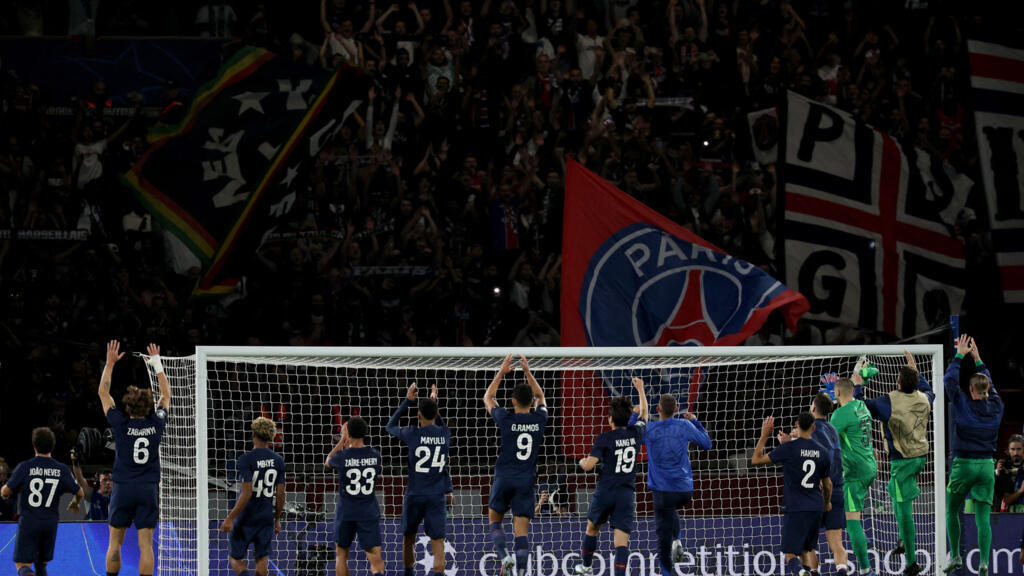
-
Champions en titre, les Parisiens retrouvent l'Europe avec la manière
Malgré les blessures de plusieurs cadres de l'équipe et un nouveau statut de champions à assumer, les Parisiens se sont baladés face à l'Atalanta, en ouverture de la Ligue des champions. Alors que les hommes de Luis Enrique défendent pour la première fois un titre qui leur a longtemps échappé, ils font le plein de confiance avant d'affronter le FC Barcelone en Catalogne. Une mentalité saluée par Luis Enrique.
Champions en titre, les Parisiens retrouvent l'Europe avec la manière

-
Le Devoir
-
Les Rays freinent la séquence victorieuse des Jays
L’équipe torontoise, qui mène de la section Est de la Ligue américaine, restait sur six victoires de suite.
Les Rays freinent la séquence victorieuse des Jays
-
France 24 - Infos, news & actualités - L'information internationale en direct

-
Ligue des champions : le PSG débute par une brillante victoire face à l'Atalanta
Rêvant d'un deuxième sacre, le PSG a démarré sa saison de Ligue des champions avec éclat en battant l'Atalanta Bergame, quatre buts à zéro, mercredi au Parc des Princes.
Ligue des champions : le PSG débute par une brillante victoire face à l'Atalanta

-
Journal Le Soir

-
Le Bar Laser prêt à viser les grands sommets
Le Bar Laser de Causapscal revient en force cette année avec Steven Leclerc et Maxime Charest, deux nouveaux présidents qui ont repris les rênes de l’équipe. Le Laser version 2025 que les partisans verront sur la glace sera rehaussé par le retour de vétérans et l’arrivée de joueurs repêchés dans le nouveau territoire élargi. « Nous avons mis sous contrat Olivier Gendron et Francis Bérubé. Patrick Tremblay et William Champagne de retour. Devant les buts, Jean-Christophe Parent partagera le
Le Bar Laser prêt à viser les grands sommets

Le Bar Laser de Causapscal revient en force cette année avec Steven Leclerc et Maxime Charest, deux nouveaux présidents qui ont repris les rênes de l’équipe.
Le Laser version 2025 que les partisans verront sur la glace sera rehaussé par le retour de vétérans et l’arrivée de joueurs repêchés dans le nouveau territoire élargi.
« Nous avons mis sous contrat Olivier Gendron et Francis Bérubé. Patrick Tremblay et William Champagne de retour. Devant les buts, Jean-Christophe Parent partagera le travail avec Vincent Morin », explique Steven Leclerc.
Derrière le banc, l’équipe comptera sur Mathieu Morin au poste d’entraîneur-chef assisté de Jason Caron, un ancien joueur de l’Océanic bien connu dans la Vallée de la Matapédia.
Le capitaine de l’équipe, Olivier Gallant, sera aussi de retour avec la formation de Causapscal.
Tradition gagnante
L’an dernier, le Bar Laser avait terminé au cinquième rang du classement général avec une fiche de trois victoires et 13 défaites. Il avait subi l’élimination lors du tournoi à la ronde servant de première ronde des séries éliminatoires.
Les présidents veulent ainsi ramener la tradition gagnante du hockey senior à Causapscal. Dans son histoire, le Bar Laser a remporté les championnats de 2019 et 2022.

« Dans notre cœur, nous avons trois coupes à notre actif (en 2020, l’équipe menait 2-0 en finale avant l’interruption des activités en raison de la COVID-19) et on vise une quatrième cette année. Avec l’équipe qu’on présente cette année, on sera en mesure d’être compétitifs et on souhaite que nos partisans remplissent les estrades », conclut Steven Leclerc.
-
Le Devoir
-
St-Louis souhaite que les joueurs abordent le camp avec le sentiment d’urgence
L’entraîneur-chef du Tricolore garde un mauvais souvenir du camp du Canadien de Montréal l’an dernier.
St-Louis souhaite que les joueurs abordent le camp avec le sentiment d’urgence
-
Le Devoir
-
Kirby Dach commencera le camp du Canadien comme deuxième centre
L’Albertain âgé de 24 ans a été limité à 57 matchs la saison dernière en raison d’une blessure au genou droit.
Kirby Dach commencera le camp du Canadien comme deuxième centre
-
Le Devoir
-
Leduc se qualifie de justesse au 200 m aux Mondiaux d’athlétisme
Leduc a complété la distance en 22,82 secondes, terminant quatrième de sa vague.
Leduc se qualifie de justesse au 200 m aux Mondiaux d’athlétisme
-
Journal Le Soir

-
Football scolaire : doublés pour Mont-Joli et Rivière-du-Loup
Les équipes de Mont-Joli et de Rivière-du-Loup sont sorties victorieuses de la deuxième fin de semaine d’activités dans le circuit de football du Réseau du sport étudiant du Québec/Est-du-Québec (RSEQ-EQ). Les deux équipes du Mistral de Mont-Joli visitaient, samedi, les Griffons du Grand Gaspé. Les cadets l’ont emporté par la marque de 29 à 21 et les juvéniles ont écrasé leur adversaire 41 à 6. Le lendemain, les Guerriers de l’école secondaire de Rivière-du-Loup ont imité les succès du Mi
Football scolaire : doublés pour Mont-Joli et Rivière-du-Loup

Les équipes de Mont-Joli et de Rivière-du-Loup sont sorties victorieuses de la deuxième fin de semaine d’activités dans le circuit de football du Réseau du sport étudiant du Québec/Est-du-Québec (RSEQ-EQ).
Les deux équipes du Mistral de Mont-Joli visitaient, samedi, les Griffons du Grand Gaspé. Les cadets l’ont emporté par la marque de 29 à 21 et les juvéniles ont écrasé leur adversaire 41 à 6.
Le lendemain, les Guerriers de l’école secondaire de Rivière-du-Loup ont imité les succès du Mistral sur le terrain de l’école secondaire de Matane. Ils ont infligé deux défaites aux Gladiateurs, soit 41 à 6 chez les cadets et 27 à 1 chez les juvéniles.
Le Mistral occupe le premier rang du classement cadet et Rivière-du-Loup de l’autre catégorie.
La fin de semaine prochaine, les deux équipes de Gaspé seront à Rivière-du-Loup. Mont-Joli (cadet) et Rimouski (juvénile) visiteront les Gladiateurs de Matane.

-
France 24 - Infos, news & actualités - L'information internationale en direct

-
Ligue des Champions : l'OM s'incline face au Real Madrid de Kylian Mbappé
Malgré 20 minutes en supériorité numérique, l'Olympique de Marseille s'est incliné sur la pelouse du Real Madrid (2-1). Kylian Mbappé a inscrit un doublé sur penalty.
Ligue des Champions : l'OM s'incline face au Real Madrid de Kylian Mbappé

-
Le Devoir
-
L’entraîneur-chef du Rocket a un plan concret pour Jacob Fowler
Fowler a signé son contrat de recrue au printemps dernier et s’était joint au club-école du Canadien pour trois matchs.
L’entraîneur-chef du Rocket a un plan concret pour Jacob Fowler
-
France 24 - Infos, news & actualités - L'information internationale en direct

-
Ligue des champions : Mbappé et le Real Madrid font craquer l'OM
Le Real Madrid est venu à bout de l'Olympique de Marseille, grâce à deux buts de Kylian Mbappé, mardi pour son entrée en lice en Ligue des champions, tandis que la Juventus a arraché un improbable nul au Borussia Dortmund.
Ligue des champions : Mbappé et le Real Madrid font craquer l'OM

-
France 24 - Infos, news & actualités - L'information internationale en direct

-
Le PSG en quête de doublé débute sa campagne européenne face à l'Atalanta
Tenant du titre, le PSG retrouve la Ligue des champions, mercredi, face à l'équipe italienne de l'Atalanta Bergame. Même si sur le papier, les Parisiens font figure de favori, ils vont devoir gérer l'absence de nombreux joueurs en raison de blessures.
Le PSG en quête de doublé débute sa campagne européenne face à l'Atalanta

-
Le Devoir
-
Record et titre mondial pour le lanceur de marteau Ethan Katzberg
À Tokyo, le Canadien a effectué un lancer de 84,70 mètres à sa deuxième tentative.
Record et titre mondial pour le lanceur de marteau Ethan Katzberg
-
Le Devoir
-
Une course sprint aura lieu dans le cadre du Grand Prix de F1 du Canada en 2026
La course d’environ 100 km, qui permet d’accumuler des points pour le championnat, sera disputée le samedi.
Une course sprint aura lieu dans le cadre du Grand Prix de F1 du Canada en 2026
-
France 24 - Infos, news & actualités - L'information internationale en direct
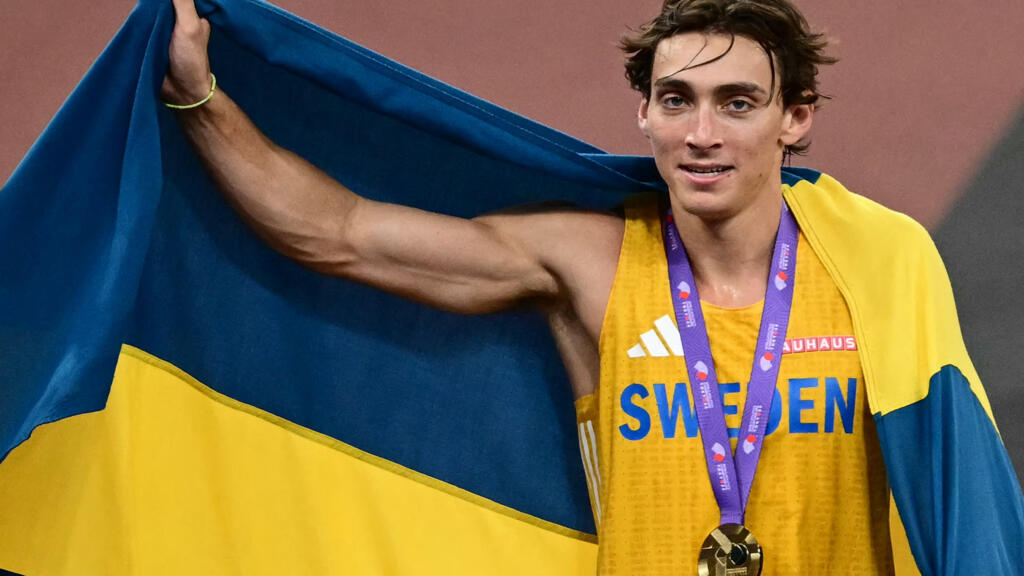
-
6,30 mètres : Armand Duplantis repousse à nouveau le record du monde de saut à la perche
Le Suédois Armand Duplantis est sacré champion du monde du saut à la perche en établissant un nouveau record du monde, avec un saut à 6,30 mètres.
6,30 mètres : Armand Duplantis repousse à nouveau le record du monde de saut à la perche

-
Le Devoir
-
Courte victoire des Blue Jays à Tampa
Les Rays ont perdu huit de leurs 10 dernières rencontres.
Courte victoire des Blue Jays à Tampa
-
Le Devoir
-
Les nouveaux venus Noah Dobson et Zachary Bolduc réalisent un rêve d’enfance
Ni l’un ni l’autre n’a semblé être intimidé devant la horde de journalistes qui les attendait.
Les nouveaux venus Noah Dobson et Zachary Bolduc réalisent un rêve d’enfance
-
Le Devoir
-
Camryn Rogers encore championne du monde de lancer du marteau
L’athlète canadienne a également fracassé son propre record canadien en effectuant un lancer de 80,51 mètres.
Camryn Rogers encore championne du monde de lancer du marteau
-
France 24 - Infos, news & actualités - L'information internationale en direct

-
L'instant + : à Paris, la première Fête du sport réunit 140 000 personnes
Plus de 5 000 animations gratuites ont été organisées dimanche à travers la France pour la toute première édition de la Fête du sport. À Paris, l'événement a rassemblé près de 140 000 participants. Plusieurs athlètes de renom, dont Laure Manaudou et Marie-José Pérec, y ont pris part.
L'instant + : à Paris, la première Fête du sport réunit 140 000 personnes

-
Le Devoir
-
Le Canadien compte sur un groupe plus talentueux, qui devra être plus constant
L’état-major du Tricolore n’a pas voulu établir d’objectifs précis pour la saison 2025-2026 lors du lancement officiel.
Le Canadien compte sur un groupe plus talentueux, qui devra être plus constant
-
Journal Le Soir

-
Patinage artistique : huit patineuses de Rimouski à Québec
Huit athlètes représenteront le Club de patinage artistique de Rimouski, du 18 au 21 septembre, à la compétition provinciale Souvenir Georges-Éthier, présentée du 18 au 21 septembre, au Centre sportif Marc-Simoneau de Québec. Il s’agit de Rosalie Levesque (junior), Ariane Dubé (juvénile), Angélique Beaulieu (novice), Maude Harrisson (juvénile), Laurence Gagnon (juvénile), Maïlie Hamilton (pré-novice), Meredith Habel (pré-novice) et Élodie Chénard (novice). L’événement d’envergure rassembl
Patinage artistique : huit patineuses de Rimouski à Québec

Huit athlètes représenteront le Club de patinage artistique de Rimouski, du 18 au 21 septembre, à la compétition provinciale Souvenir Georges-Éthier, présentée du 18 au 21 septembre, au Centre sportif Marc-Simoneau de Québec.
Il s’agit de Rosalie Levesque (junior), Ariane Dubé (juvénile), Angélique Beaulieu (novice), Maude Harrisson (juvénile), Laurence Gagnon (juvénile), Maïlie Hamilton (pré-novice), Meredith Habel (pré-novice) et Élodie Chénard (novice).
L’événement d’envergure rassemblera plus de 450 athlètes provenant de partout au Québec, dans les catégories dames, messieurs, couples et danse, du niveau pré-juvénile à sénior.
Sur le plan individuel, Hamilton visera un premier podium cette saison après avoir terminé en cinquième position lors des Championnats d’été tenus à Pierrefonds, en août dernier.
Pour sa part, Lévesque tentera de répéter sa performance de l’an dernier, alors qu’elle avait décroché la troisième marche du prestigieux podium. Dubé ambitionne également une place parmi les trois premières. L’an dernier, elle avait terminé tout près du podium avec une quatrième position, à seulement 1,61 point du bronze.
Il sera possible de suivre toutes les performances des athlètes, en direct, au https://patinage.qc.ca/souvenir-georges-ethier/.

-
France 24 - Infos, news & actualités - L'information internationale en direct
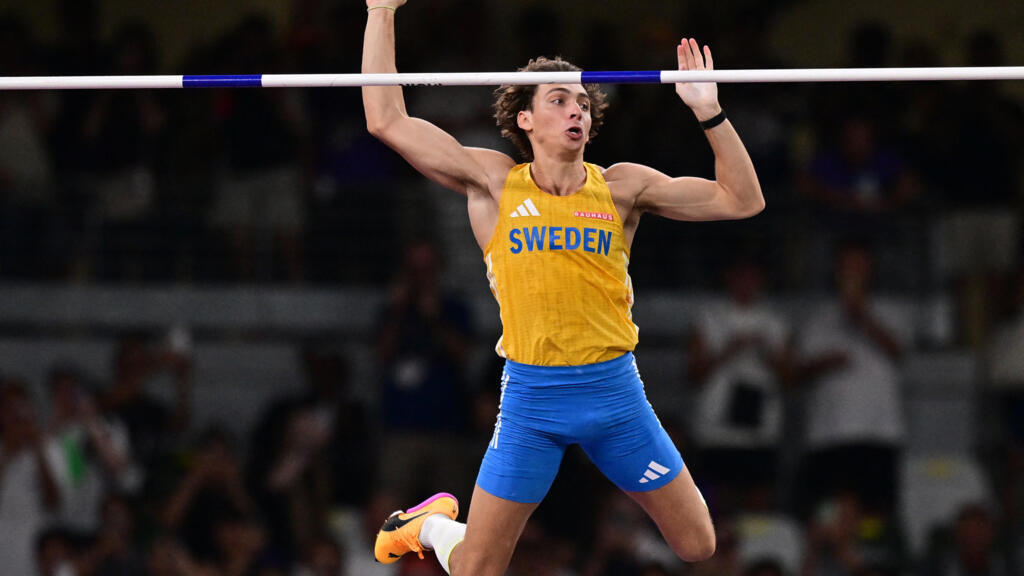
-
Mondiaux d'athlétisme : Armand Duplantis franchit 6,30 m à la perche, son 14e record du monde
Le Suédois Armand Duplantis a une nouvelle fois inscrit son nom dans l’histoire en battant le record du monde du saut à la perche. Lors des Mondiaux de Tokyo, il a franchi la barre des 6,30 m, améliorant son précédent record d'un centimètre.
Mondiaux d'athlétisme : Armand Duplantis franchit 6,30 m à la perche, son 14e record du monde

-
France 24 - Infos, news & actualités - L'information internationale en direct

-
Ligue des champions : l'Olympique de Marseille entre en piste face au colosse madrilène
Portés par leur large victoire contre Lorient, les Marseillais plongent dans le bain européen sans se mouiller la nuque. L'OM s’attaque dès mardi soir au Real Madrid de Kylian Mbappé. Le PSG, champion du monde en titre, affrontera le lendemain les Italiens de l'Atalanta Bergame, avec le statut d'équipe à abattre.
Ligue des champions : l'Olympique de Marseille entre en piste face au colosse madrilène

-
France 24 - Infos, news & actualités - L'information internationale en direct

-
Les Bleues renversantes, l'Allemagne triomphante, Gressier épatant : les infos sport du week-end
Le Français Jimmy Gressier champion du monde du 10 000 mètres, les Bleues en demies du mondial de rugby, la Vuelta interrompue à Madrid, l'Allemagne renverse la Turquie en finale de l'Euro de basket... C'est l'heure de votre récap' sport de la semaine.
Les Bleues renversantes, l'Allemagne triomphante, Gressier épatant : les infos sport du week-end

-
France 24 - Infos, news & actualités - L'information internationale en direct

-
CAN 2025 : Lions, Léopards, Grues... Les surnoms des 24 équipes participantes
Découvrez les surnoms emblématiques des 24 équipes de la CAN 2025, entre Pharaons, Lions divers et variés, Aigles et autres animaux totems.
CAN 2025 : Lions, Léopards, Grues... Les surnoms des 24 équipes participantes

-
France 24 - Infos, news & actualités - L'information internationale en direct

-
L'exploit de Jimmy Gressier, sacré champion du monde sur 10 000 mètres
Le Français Jimmy Gressier est devenu champion du monde du 10 000 mètres ce dimanche à Tokyo. Il est le neuvième athlète français champion du monde en individuel.
L'exploit de Jimmy Gressier, sacré champion du monde sur 10 000 mètres

-
Le Devoir
-
Soirée sans médaille pour le Canada aux Mondiaux d’athlétisme
Le Canada n’a délégué aucun de ses représentants aux finales du 100 mètres masculin et féminin.
Soirée sans médaille pour le Canada aux Mondiaux d’athlétisme
-
Le Devoir
-
Appuyés par Bieber, les Blue Jays balaient les Orioles
Addison Barger a claqué un double de trois points en septième.
Appuyés par Bieber, les Blue Jays balaient les Orioles
-
Le Devoir
-
Sans Demidov, les espoirs du Canadien s’inclinent devant ceux des Maple Leafs
Les amateurs de beaux jeux offensifs en ont moins eu pour leur argent que la veille.
Sans Demidov, les espoirs du Canadien s’inclinent devant ceux des Maple Leafs
-
Journal Le Soir
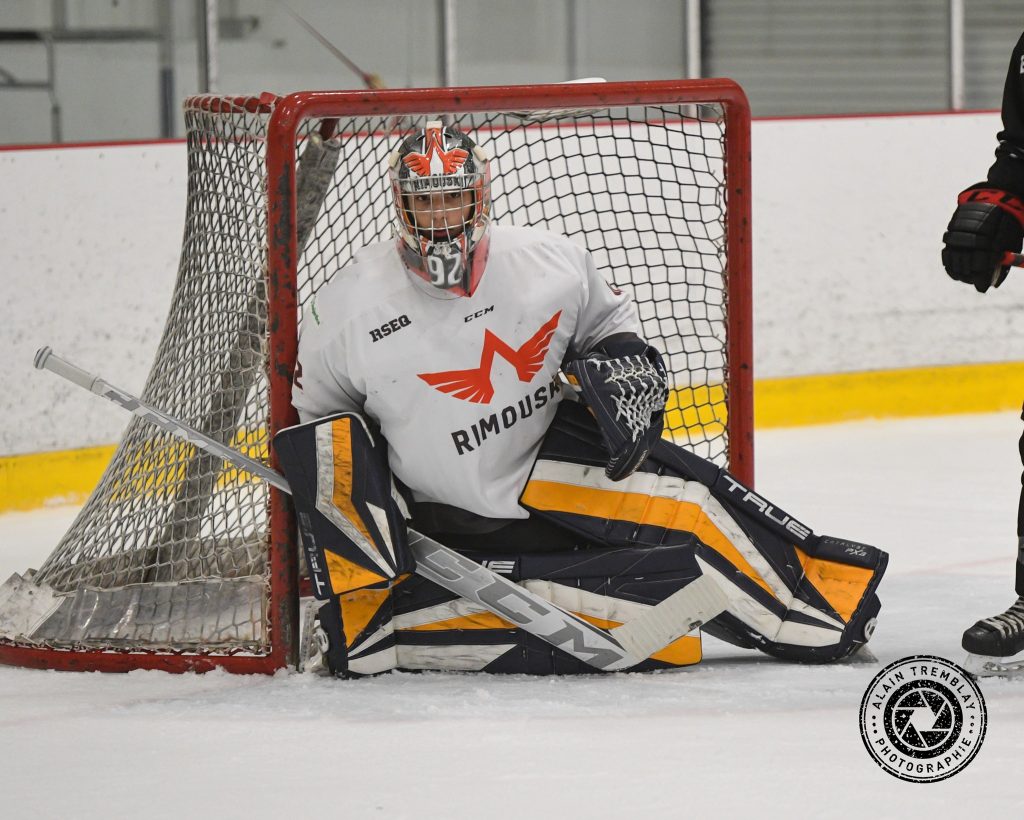
-
Pionniers hockey : deux victoires pour lancer la saison
C’est avec deux victoires sur les patinoires adverses que les Pionniers du Cégep de Rimouski en hockey ont amorcé la nouvelle saison de la Ligue collégiale du Québec. Après avoir eu le meilleur sur les Dragons du Collège Laflèche, samedi à Trois-Rivières, ils ont défait les Titans de Limoilou par 6-4, dimanche à Québec. Samedi, Émerick Allison a marqué deux buts dans une victoire de 5-2. Gabriel-Alexis Bisson, Noah Belzile et Jérémie Leclerc ont complété. Belzile a aussi deux passes. L
Pionniers hockey : deux victoires pour lancer la saison

C’est avec deux victoires sur les patinoires adverses que les Pionniers du Cégep de Rimouski en hockey ont amorcé la nouvelle saison de la Ligue collégiale du Québec.
Après avoir eu le meilleur sur les Dragons du Collège Laflèche, samedi à Trois-Rivières, ils ont défait les Titans de Limoilou par 6-4, dimanche à Québec.
Samedi, Émerick Allison a marqué deux buts dans une victoire de 5-2. Gabriel-Alexis Bisson, Noah Belzile et Jérémie Leclerc ont complété. Belzile a aussi deux passes.
Les Pionniers ont largement dominé dans la colonne des lancers avec 45 contre 20.
Pour le sommaire: cliquez ici
Dimanche, les Pionniers ont connu un autre bon match offensif avec les trois premiers buts de la rencontre en première période. Robin Henry en a deux dans le match, les autres allant à Gabriel Dumais, Jérémie Leclerc, Samuel Miousse et Gabriel-Alexis Bisson.
Pour le sommaire: cliquez ici
Les deux gardiens, William Castonguay et Mathieu Albert, ont inscrit chacun une victoire à leur dossier en ce début de saison.
« Nous avons eu un premier week-end fort satisfaisant. L’effort et l’application du système de jeu, particulièrement dans les phases de jeux offensives, ont été excellents pendant les deux matchs. Nous avons eu de bons moments avec nos quatre trios et nos trois paires de défenseurs. C’est donc encourageant pour les semaines à venir. Nous avons quelques ajustements défensifs à faire, mais, si l’attitude et l’éthique de travail demeurent ainsi, les résultats seront positifs », a commenté le nouvel entraineur-chef, Nicholas Duchesne, dans un bilan de la fin de semaine au journal numérique Le Soir.
À venir
Les Pionniers inaugureront leur calendrier local samedi prochain, 18 h 45, en recevant les Titans au Complexe sportif Desjardins.
Pour leur part, les Pionnières amorceront leur saison 25-26 en accueillant les Lynx du Cégep Édouard-Montpetit samedi à 15 h 30 et les Filons du Cégep de Thetford, dimanche à midi.
-
France 24 - Infos, news & actualités - L'information internationale en direct

-
Euro de basket : au bout du suspense, l'Allemagne terrasse la Turquie en finale
Sur le toit de l'Europe ! L'Allemagne a remporté l'Euro de basket après sa victoire contre la Turquie (88-83), au terme d'une finale à rebondissements, dimanche à Riga. Il s'agit du deuxième sacre de son histoire dans cette compétition.
Euro de basket : au bout du suspense, l'Allemagne terrasse la Turquie en finale

-
Le Devoir
-
Jonas Vingegaard remporte sa première Vuelta déraillée par les manifestants propalestiniens
Les incidents ont perturbé la Vuelta depuis son arrivée en Espagne en raison de la participation de Israel-Premier Tech.